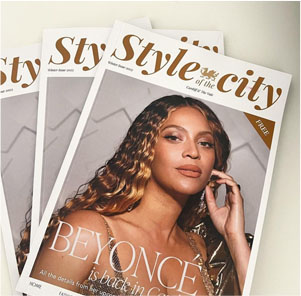Ah, wedding season… the time of magic, excitement, and some prickly conversations.
While it isn’t the most romantic of topics to tackle, the prenup is one of the most divisive issues that a couple can face. We know, we know. The last thing you want to do when planning your forever is considering what happens if that happily ever after is cut short. Nobody goes into a marriage planning for it to end.
It may not seem important to some, but a prenup is there for your protection. With both parties putting everything on the table, it secures your financial wellbeing and protects any assets.
With women making their mark, prioritising their careers and driving their own successes, there’s plenty to take care of. The process also raises important financial issues or priorities ahead of the big day, putting you both on the same page.
It might seem like an unromantic precaution (and it certainly isn’t for everyone), but we don’t think anyone can argue that it’s better to be safe than sorry. You know, in case life, or other problems, do us part.
With the welcome distraction of table plans, dress adjustments and the big question of how many fairylights is actually too many, a prenup often comes last on the list of wedding planning.
Who wants to ruin the romance anyway?
It turns out that Wales’s brides-to-be are increasingly ready to sign a prenuptial agreement ahead of their vows, an expert family solicitor has revealed.
Jodi Winter, partner at CJCH Solicitors and head of Family, Matrimonial and Childcare law, said the firm had seen a definite increase in engaged women entering into a prenuptial agreement before saying I Do in recent years.
To clarify, a prenuptial agreement is a formal written agreement both parties enter into ahead of the marriage, which details ownership of any property, assets and finances and outlines how they will be divided in the event of a divorce.
Jodi, who works at the firm’s Barry office, said the influx in women consulting a solicitor could be attributed to people choosing to marry later in life.
She said: “At CJCH Solicitors we have seen a definite increase in women entering into prenuptial agreements.
“Historically, it was always men who looked into this ahead of the marriage, however that trend has definitely shifted and more women are looking to instigate this now.
“I think this comes down to the fact that they are getting married later in life, having pursued their careers and ensuring they are financially stable. As such they want to ensure the property, assets, and finances they have acquired are protected in the event of a divorce.”
Jodi, whose legal specialisms also include cohabitation agreements, said overall the firm had seen an increase in the number of people in Wales entering into a prenuptial agreement ahead of their wedding, with both men and women making more enquiries.
She said that as women and men married later in life they were more cautious about protecting themselves financially as they entered into marriage. Who can blame them, right?
She added: “We see a lot of people getting married for the first time in their mid to late 30s now, who have got their own properties, business and other assets.
“Equally, there are a lot of more mature people entering into their second marriage, having already gone through divorce once.
“I think that age is a definite factor in the decision to enter into a prenuptial agreement, and I think the gradual rise we have seen in drafting agreements can be linked with later marriages.”
Here, Jodi gives her advice on what couples should consider with their own prenup decision.
When should proceedings start?
This should be carried out at least 28 days ahead of the wedding to ensure all matters are resolved ahead of the ceremony. Allow as much time as possible to ensure all matters are thoroughly considered, negotiated and signed without any unnecessary pressure.
What does a prenuptial agreement protect?
A prenuptial agreement can protect all aspects of both partner’s finances, assets, and property which they acquired before getting married. It can also protect inherited assets, children’s inheritance, control over a business, protect one partner against the other’s debt, and savings.
How do you make a start?
You can get in touch with the expert Family and Childcare Law team at CJCH Solicitors which can guide you through the process. We have extensive experience in working with couples to ensure the outcome is fair and protects everyone’s interests.
What happens if you spilt without a prenuptial agreement in place?
Generally assets are divided 50/50 among both parties in the event of a divorce that doesn’t involve a prenuptial agreement. However, if you feel there is likely to be a financial, or asset imbalance, and there are elements you’d like to protect, then it could be worth entering into a prenuptial agreement.
What’s the difference between a prenuptial agreement and a cohabitation agreement?
A prenuptial agreement is a formal written agreement both parties enter into ahead of a marriage, which outlines their individual entitlements in the event of a divorce. A cohabitation agreement is more specifically suited to couples who are living together, but are unmarried. This also outlines issues including ownership of assets after a divorce, child arrangements, and joint financial dealings. However, couples who are intending to marry while living together would be advised to get a prenuptial agreement before the wedding as it offers greater legal enforceability in the event of a separation.






